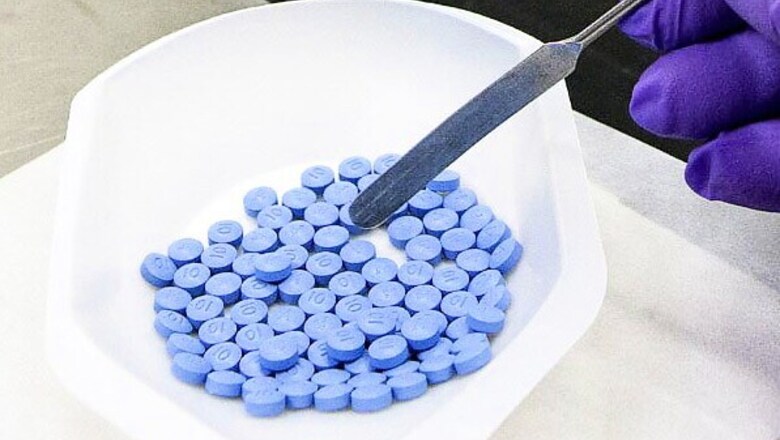
views
London: A vaccine containing a protein necessary for virus replication can boost an HIV-infected patient's immune system and increase effectiveness of antiretroviral drugs, a new study has found.
When people are first diagnosed with HIV they are put on antiretroviral drugs, also known as highly active antiretroviral therapy (HAART).
These drugs can stop the virus reproducing almost completely. When taking HAART, however, it is known that the virus can still replicate at low levels and accumulate in a latent form in what are called "reservoirs".
These reservoirs, located throughout the body including the brain, bone marrow and genital tract, cannot be acted upon by HAART and can cause complications and deaths due to non-AIDS related diseases.
The new vaccine targets the viral protein "Tat", which is produced early on in HIV infection. Tat has a key role in viral replication and progression of the disease by weakening the immune system.
By designing a vaccine that included a small amount of the Tat protein, researchers were able to produce an immune response to prevent disease progression.
"We prove for the first time that antiretroviral therapy may be intensified by a vaccine," said lead researcher, Barbara Ensoli, from the National AIDS Centre, Istituto Superiore di Sanita in Rome, Italy.
"These results open new scenarios to investigate, namely whether this vaccine may help with virus control where patients have low adherence to antiretroviral therapy, simplify treatment, and reduce transmission of the disease," said Ensoli.
Researchers conducted a Phase II clinical trial that injected 168 HIV-infected patients with the vaccine that contained either 7.5 micrograms or 30 micrograms of the Tat protein.
For both doses, the participants received the vaccine once a month over the course of either three or five months. None of the participants had anti-Tat antibodies at the start of the trial and it was anticipated that the vaccine would induce them. The patients also continued on HAART treatment.
Patients were followed for three years (144 weeks). It was found that the vaccine induced production of anti-Tat antibodies.
A significant growth of CD4+ T cells was also seen, which is a sign of the immune system's strength. There was also an increase in the T, B and other immune cells. The biggest response was seen amongst those who received the vaccine with 30 micrograms of Tat over the course of three months. These effects were found to persist for all the three years.
Those who received the vaccine also had a significant reduction in HIV "proviral" DNA load, which acts as an indicator of the latent form of the virus in reservoirs. The research was published in the journal Retrovirology.
















Comments
0 comment